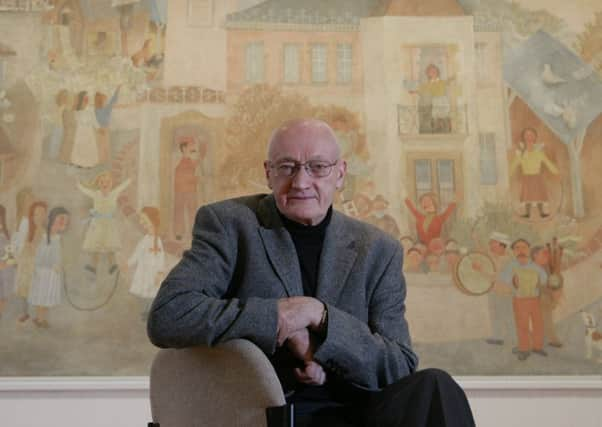Andrew Wilson: The dangers of grey power


The former Bishop of Edinburgh and Primus of the Scottish Episcopal Church is still stimulating the depth of our minds and spirits well into his ninth decade.
He was born in inter-war Glasgow in the community of Possilpark and retained a strong affection and support for a place where life has never been simple for its people and has hardened with the passing decades. My mum and dad met at St Matthew’s church there and played in a badminton club that united a whole generation of family and friends.
Advertisement
Hide AdAdvertisement
Hide AdI still enjoy real and created aunts and uncles from that community and at the end of this month many of them will gather to celebrate my own parents’ 60th wedding anniversary. They have all long moved out of the area through endeavour and good fortune. But they all retain a happy regard for the time of their youth and for the youthful priest from their parish who went on to lead their church before having his own battle with his own faith, a rattle many feel.
On daytime BBC Radio 4 he is currently broadcasting a series of ten reflections on growing old under the series “three score years and ten”, the biblical years of our lives. On one entitled “Letting Go” he explores the tensions many feel as we age.
He calls it “Age Rage: our anger against the young for being young, our rage against the world for becoming an unfamiliar place. Our fury at age and her sister, decay.”
But each generation has to learn all over again when and how to hand on the torch. The happiest people have learned to face with resilience whatever life throws their way at whatever age and stage.
The human condition is a puzzle which is always brought home to me in the Burns season, chiefly because of our poet’s reflections on how the mouse is only touched by the present while the rest of us look backwards in regret or forwards in fear.
Each and every stage of life can allow the pressures to build as we yearn for better round the corner and too often cling to either resentments about past mistakes or a rosy remembrance of what never really was.
As we age, of course, the time we look ahead to compresses and our anxiety and urgency in that direction can increase. In contrast, when we are in our middle life the pressures on us to perform in the present are at their most intense; we must service debt, save for pensions, work all the hours and still try to raise our children. It is little wonder that so many modern relationships have the life squeezed out of them.
If we were thinking rationally about the cycle of life we would do more to ease the pain of middle life, the people on whom society depends for so much and now more than ever before. As it is, society’s resources are skewed to the old on a grand scale.
Advertisement
Hide AdAdvertisement
Hide AdHolloway observes that the growth of the elderly population and their voting power carries great risks for the whole of society. “We moan about the size of the welfare budget though most of it is spent on us while the cuts are felt by the poor.”
He is right in generality of course, if not in every instance. As a demographic, the old receive a vastly disproportionate share of the economic spoils at present whether from taxpayer-funded benefits or the non-productive inheritance of a debt-fuelled housing boom that has enriched fortunate generations by accident of timing while locking the next generation out by virtue of the same.
For those lucky enough to have taken their pension at the right time, their elderly income will be vast in comparison with their children’s as that grand failure of inter-generational planning and management is visited on my generation and the next.
The result, concludes Holloway, “is a society being made in the image of old angry people rather than one that prepares the young for their turn at the front. The irony is that the gifts politicians lavish on us don’t stop us moaning about what a bad deal we are getting. Jesus was right: if we hold on too long we lose the joy. If we cheerfully let it go and give the young their turn we can sit back and enjoy what’s left of our day at the races.”
The American author George Saunders said that “most people, as they age, become less selfish and more loving. The great Syracuse poet, Hayden Carruth, said, in a poem written near the end of his life, that he was ‘mostly love, now’.”
Holloway advises his own generation to embrace that thought. Saunders encouraged young graduates to strive to get there quicker. I am with them both on all of that. Happiness is only ever to be found in the here and now. It is ours to give.